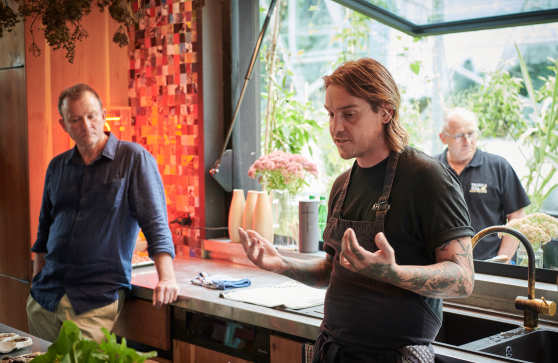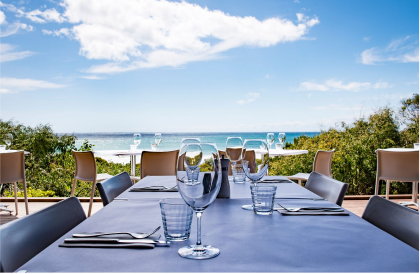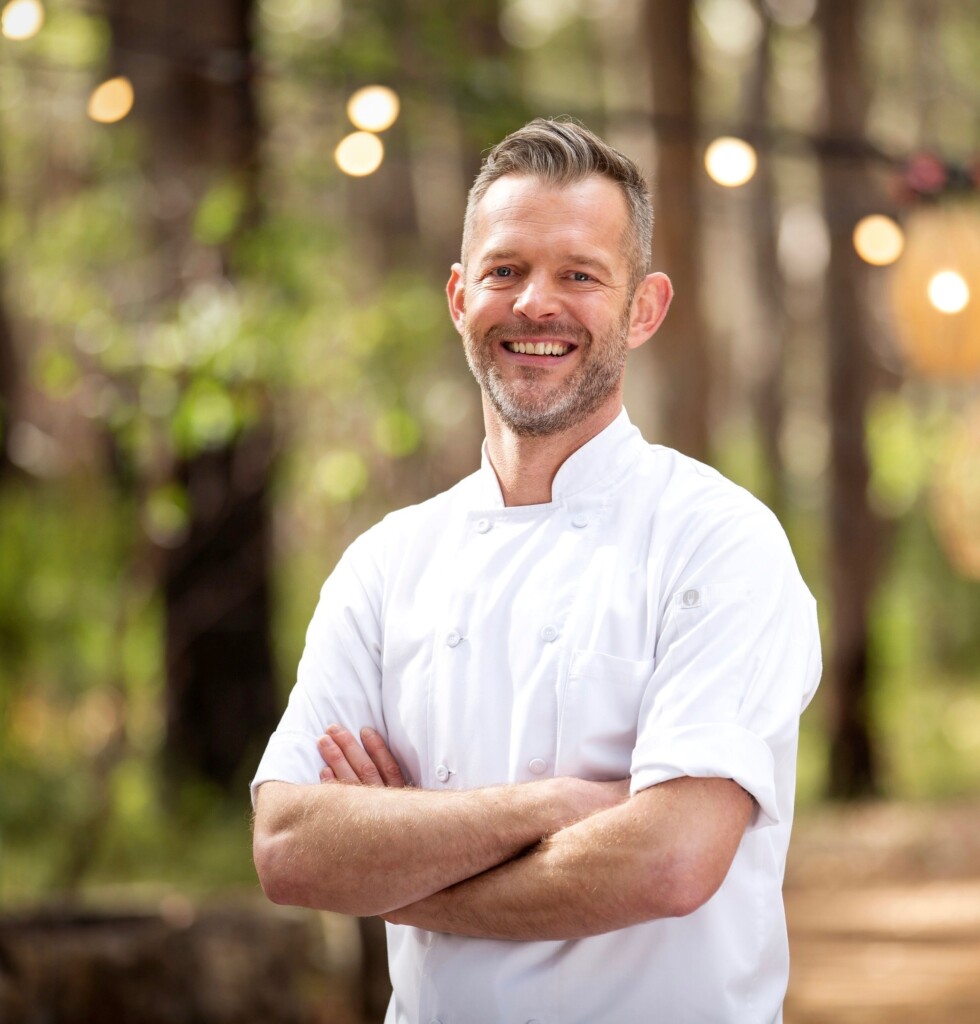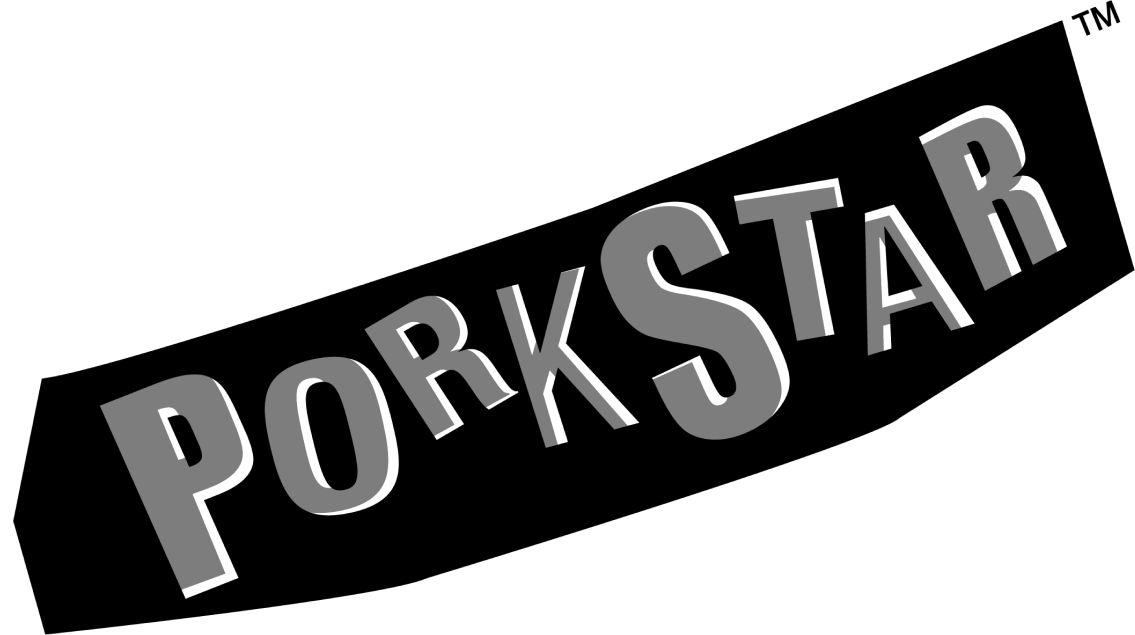More and more venues are treading the fine line between bar and restaurant, reinvigorating drinking and dining as a result.
Walk past Wines of While in Northbridge at dinner time on any given evening, and you might say it acts like a restaurant. Everyone’s seated, sipping cocktails and natural wines, and on the tables are dishes that look like they’ve come from a proper bistro kitchen: steak frites, poached coral trout with mussels and Marsala sauce, bread-and-butter pudding.
According to the decal on the front window, however, Wines of While is a bar. And, in many ways, it functions like one, too – customers aren’t required to eat, and all the ordering happens over the counter. It’s a free-flowing, versatile set-up, and owner Sam Winfield wouldn’t have it any other way.
“Why can’t a bar have great food?” he says. “And must a restaurant only express itself through its food offering?”
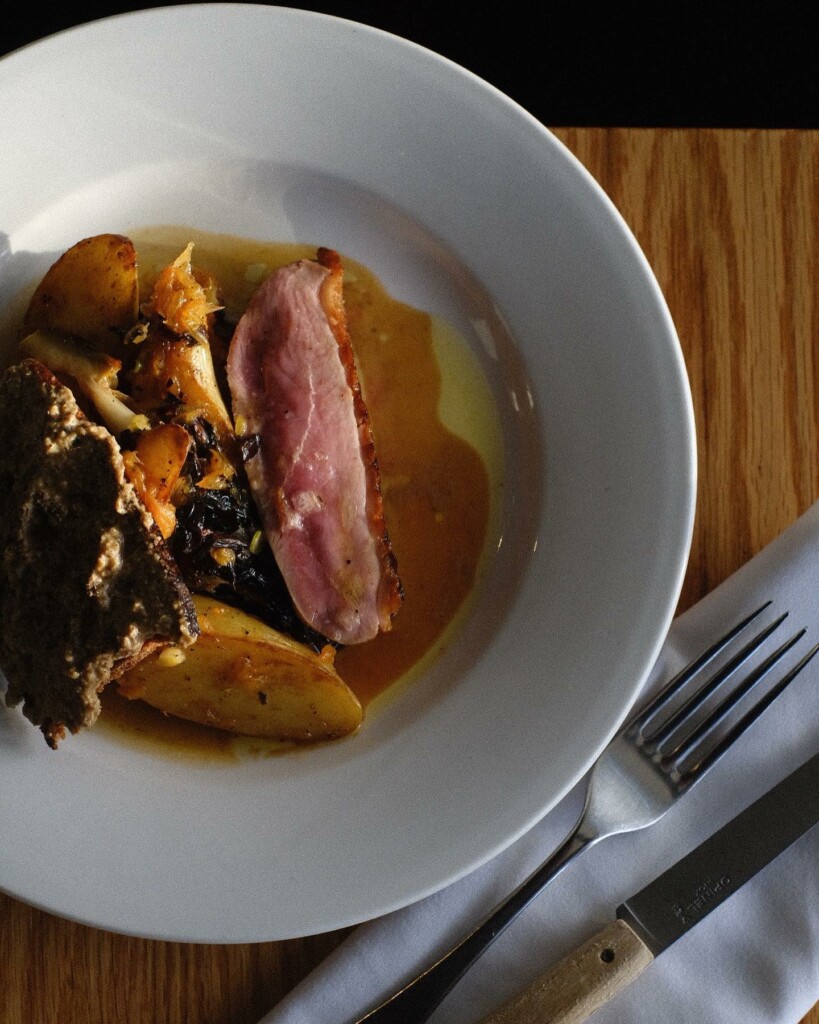
These are valid questions, and they’ve grown increasingly pertinent over the last few years as more casual establishments like Winfield’s continue to crop up across WA. In the last half-decade alone, Perth has welcomed a raft of similar counterparts, including La Madonna Nera, Casa, Bar Rogue, Si Paradiso, Mummucc’ and Wild in the Street, to name a select few. While these spots differ somewhat in their DNA, what they share is a look and feel that lies somewhere between a restaurant serving excellent booze or a boozer serving excellent food.
The bar-cum-casual-diner (or vice-versa) is a relatively recent phenomenon in Australia, spearheaded by the opening of Melbourne institutions like City Wine Shop and Gerald’s Bar in the early 2000s and influential venues like Sydney’s 10 William Street that followed in their wake. Globally speaking, the cross-breed concept has its roots in centuries-old European traditions like the Italian enoteca – a small bottle shop that doubles as a tasting room, with humble snacks on hand.
From the customer’s perspective, it’s an attractive proposition. Restaurant meals often place considerable demands on diners, in terms of time and money spent. Bars, on the other hand, require much less commitment; all you need to do is rock up – solo or with several others, usually unannounced – and see where the wind takes you. Then, there’s the question of a bar’s atmosphere, which often doubles down on the pleasure substantially by way of low-lighting, good tunes and varied seating options. Factor in the high calibre of the drinks being poured, and introducing quality cooking to the equation seems like a no-brainer.
For Dimitri Rtshiladze, owner of Fremantle’s self-anointed ‘weird wine’ bar Nieuw Ruin, the surging popularity of the hybridised format hinges on its accessibility. “This new style of venue tends to be less occasional and more fluid in its offering, allowing the people to determine which way they want to use it,” he says. “Bars have really upped the level of their food in the past five-or-so years; they’ve gone from just being a pre- or post-dinner destination to an all-encompassing night out.”
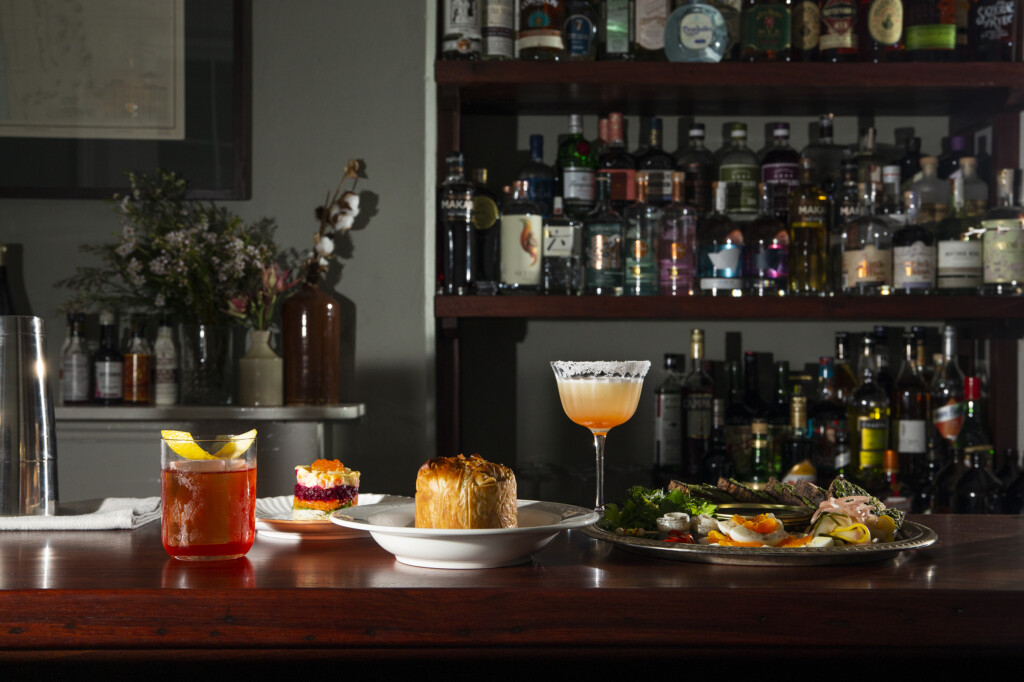
In the kitchen, that same degree of flexibility has also proven to be a major drawcard for emerging talents, many of whom are making a big impression. Blaze Young and Emily Jones are the two most recent winners of WA Good Food Guide’s Young Chef of the Year award, and both are head chefs at two of the West’s leading lights in this hard-to-categorise venue category – Nieuw Ruin and Republic of Fremantle, respectively.
“What I love about working at Republic of Fremantle is the creative freedom,” says Jones. “Because we’re not necessarily just a bar or restaurant, there’s no preconceived idea of what I should be serving, so the menu can have a mix of dishes like crumpets and raw fish.”
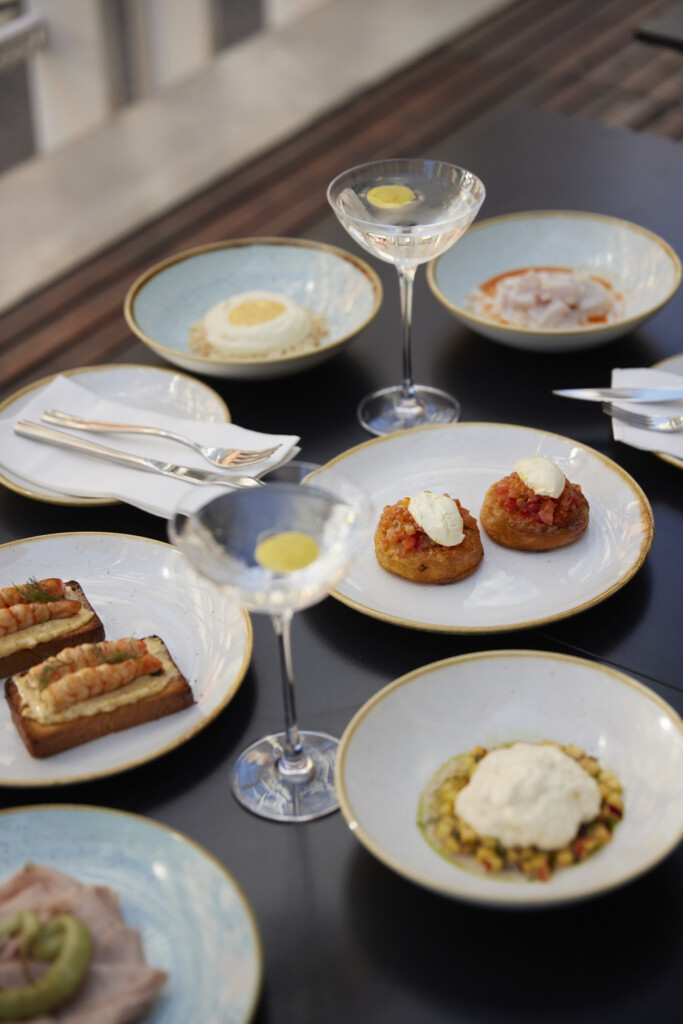
Autonomy aside, the looser, less defined structure holds significant appeal for operators, as well. In the eyes of Georgia Bisley, co-owner of Northbridge favourite Vincent Wine and newly minted Bertie in Bassendean, cost plays a big role. “Inflationary pressures and the surging cost of goods have really impacted the industry,” she says. “Removing the need for a large floor team and the associated admin around tasks like bookings allows us to remain agile in delivering a quality product at a reasonable price.”
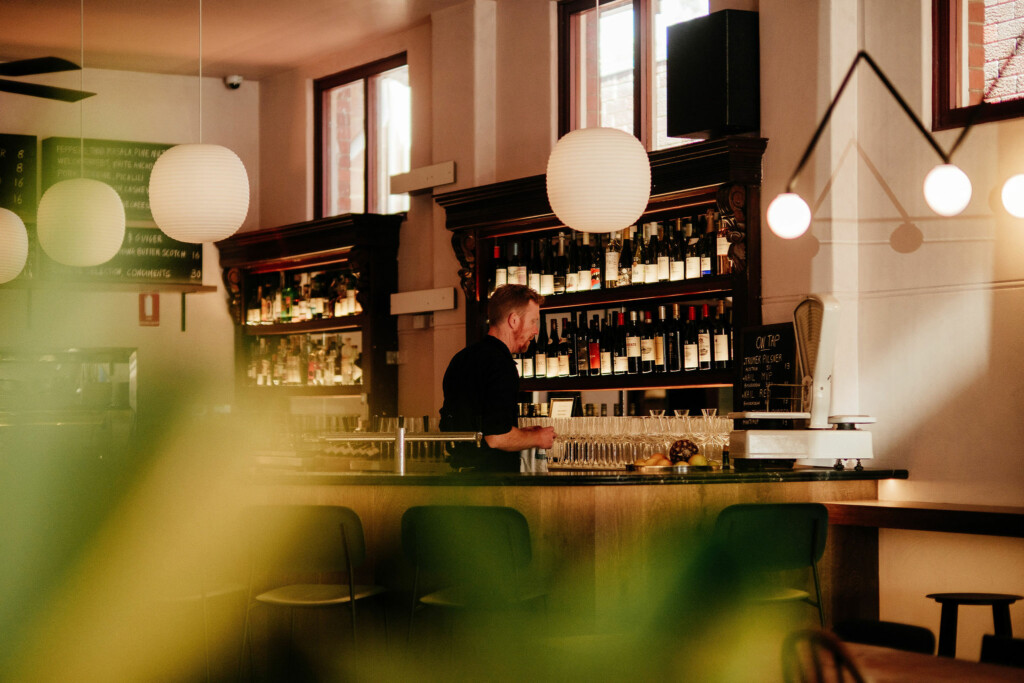
Regardless of whether the reasons are social, economic or some combination thereof, venues like those run by Bisley are having a moment. And as approachability becomes a more critical factor in deciding where we choose to eat and drink, then perhaps semantics matter less.
“I don’t think the offers need to be so binary. Modern hospitality can combine the best of bars and restaurants to deliver an experience that diners are looking for today,” Bisley says. “It’s refreshing to see the different methods that people are employing to deliver a great experience.”

